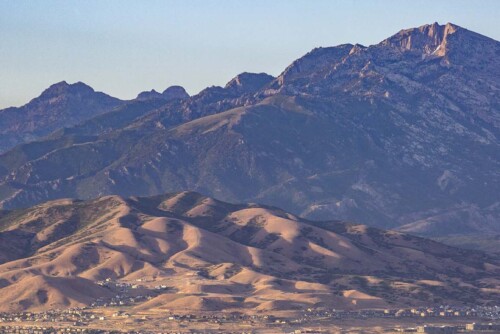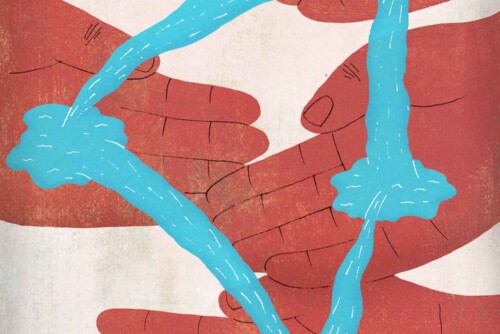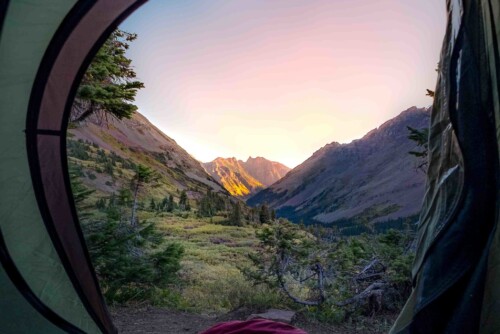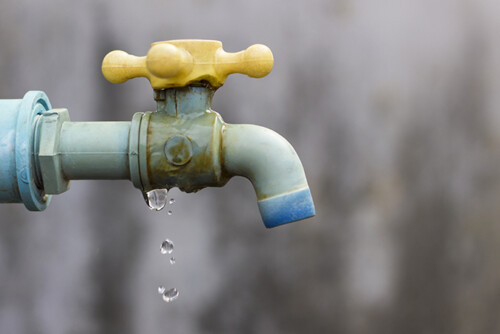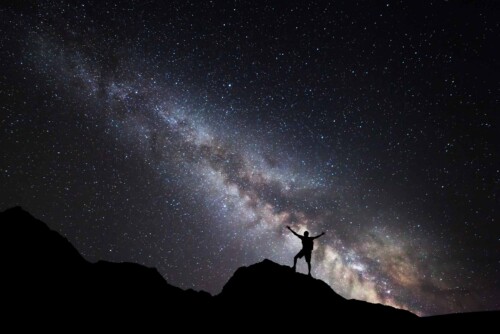All across the West people are living the climate crisis and being affected by extreme drought, wildfires, and air pollution. We need strong action to address the manifold impacts of climate change, and poll after poll shows that Westerners agree. While every person is impacted by climate change, Black, Indigenous, and other people of color (BIPOC) bear a far higher burden because of exposure to toxic co-pollutants, environmental racism, exclusion from decision making, and economic precarity that compromises resiliency.
Western Resource Advocates works across the West to reduce carbon emissions in line with the scientific consensus of what is necessary to prevent catastrophic warming. In Colorado, WRA is committed to working with advocates spanning environmental justice, conservation, health, and business interests to make meaningful progress on reaching the state’s near-term climate goals.
Progress requires building a strong and diverse coalition to fight for action, specifically in partnership with communities most harmed by pollution. WRA joined with advocates from more than 100 organizations during the 2021 legislative session to pursue important policies aimed at addressing climate pollution and advancing environmental justice in Colorado. Renée Millard Chacon was a vital leader in that fight.
Millard Chacon was the youth program development coordinator at Spirit of the Sun and is currently co-founder of Womxn from the Mountain, both of which are Indigenous womxn-led nonprofits in Colorado. A mother and educator with a master’s degree in transformative education, Millard Chacon, along with her colleagues, fights for future generations by providing Indigenous cultural resiliency education, supporting ally and accomplice training using Indigenous perspectives, working with elders who are leaders in environmental justice and experts on the harms of sustained pollution, and so much more.
Millard Chacon, who is Diné, Mexica, and Filipina, grew up in Colorado and has a family history that long predates its statehood. “Unfortunately, we’ve been fighting generation after generation for true representation and, honestly, equitable justice as well,” she says. Millard Chacon has been involved with a number of organizing efforts across the country, and she didn’t expect to find support to address longstanding barriers in Colorado that she and her elders faced when confronting climate impacts and the issues affecting disproportionately impacted communities. Instead, she found a diverse group of local partners willing to listen, be legitimate allies, and work together to craft some of the state’s most important climate bills of 2021.
“I went from giving public comment at city council meetings to being asked by the coalition to provide a perspective on behalf of my community,” she says. “Coalition members actively listened, not to respond or hijack our narratives, but to better understand the issues and include our voices in equity decisions.”
In partnership with legislative champions Senator Faith Winter and Representative Dominique Jackson, Millard Chacon worked with WRA and the coalition to advocate for the introduction of two landmark climate bills in the 2021 legislative session: House Bill 21-1266, to begin addressing environmental racism and pollution issues affecting disproportionately impacted communities in Colorado, and Senate Bill 21-200, to set limits for greenhouse gas pollution across various sectors and put the state on a path to reach its climate change goals.
While HB 21-1266 made its way through the legislature, SB 21-200 stalled after a veto threat by Governor Jared Polis. That moment stands out for Millard Chacon.
“When you have a chance to bring transformative change and it might be vetoed, it feels like your whole existence is being invalidated,” she says.
``We need to recognize when industry is harming our communities just for economic benefit and stand up for the legitimate public health and safety for community.”
However, legislators and the coalition refused to back down as negotiations with the governor’s office stretched into the eleventh hour of the legislative session. Ultimately, they reached a compromise. Important elements of SB 21-200 — including enforceable pollution limits for the electric, oil and gas, and industrial sectors — were folded into the environmental justice bill, HB 21-1266, which was the final piece of legislation to pass the 2021 General Assembly.
“I went from having this deep, disheartening, stomach-sinking feeling to suddenly realizing that they are actually going to listen this time,” Millard Chacon says. “They have to hear us, because it’s not just us, it’s everybody.’”
With HB 21-1266’s enactment, Colorado will start to make progress righting some of its environmental justice wrongs. The new law legally defines “disproportionately impacted communities” and specifies that penalties for air quality violations by polluters must be invested back into the communities that experienced the harm. It also establishes an Environmental Justice Advisory Board, which includes members from disproportionately impacted communities, codifies best public outreach and engagement practices, and requires the creation of a comprehensive statewide environmental justice plan.
From Millard Chacon’s perspective, the creation of a new environmental justice ombudsperson position within the Colorado Department of Public Health and Environment is a major success of HB 21-1266.
“This is one of the first bills that specifies if you are proposing a project that increases the negative impact on communities and creates disproportional harm, then you need to go back to the drawing board or don’t go there at all,” she says.
What made the coalition successful? Millard Chacon says it comes down to putting community over competition. She was honored to see so many groups come together, understanding that each brought to the table a strength to dismantle harm that had been done and to help rebuild where affected communities see a need.

Despite the passage of HB 21-1266, Colorado still has a long way to go to reduce emissions at the pace and scale required to protect the lives and livelihoods of the West.
Notably, HB 21-1266 does not establish a pollution reduction limit for the transportation sector, which is now the largest source of greenhouse gas pollution in Colorado. And, as Millard Chacon explains, deeper issues have yet to be addressed, such as holding polluters financially accountable for the damages they have caused, creating enforceable protections for communities, and ensuring decision making is not solely focused on businesses’ bottom lines, but rather on public health and wellbeing.
“We really need state agencies to stop giving preferential treatment to industries,” Millard Chacon says. “We need to recognize when industry is harming our communities just for economic benefit and stand with the legitimate public health and safety for community.”
When it comes to future action on climate justice, Colorado does not have a second to waste. Every day the state delays transformative action, a higher level of cumulative warming is locked in, making it harder for Colorado to achieve science-based goals and forcing disproportionately impacted communities to continue bearing unacceptable levels of harmful pollution.
“If Governor Polis wants to show that he truly cares about people, he needs to show that he is more aligned with community needs and less with industry,” says Millard Chacon. “I’m asking our leaders to put people over profits and get at the root of our problems, not evade them anymore.”
For Millard Chacon, the ability to secure equitable climate victories in the face of strong opposition shows that Colorado has reached a tipping point at which elected leaders can no longer turn a blind eye to the injustices long experienced by disproportionately impacted communities.
She is also hopeful that diverse groups can continue to come together as true allies to protect nature and future generations from the impacts of climate change. As the work continues, it will be important to ensure additional voices with lived experience continue to be centered in the work.
“It was one of the first coalitions that I’ve worked with that I was proud to be a part of and am able to say that I’ve felt heard and included,” says Millard Chacon. “At the same time, there is a long way to go.”
Millard Chacon notes that while she is part of the Indigenous community, it’s not a monolith, and equitable change is about rebuilding for all communities. Part of the coalition’s success comes from acknowledging and understanding intercultural misperceptions and moving forward to get things done.
While it can be difficult for Coloradans and other Westerners not to feel despair about the unfolding climate crisis, Millard Chacon — who says she has no choice but to stay hopeful — wants people to continue to come together authentically to support healing and prepare future generations for climate change impacts.
“I pray that we continue to move in all of the good directions that we need to protect ourselves and our biosphere,” she says. “I hope that this is a reawakening to our responsibility to future generations.”
Colorado and the West need leaders like Millard Chacon to help make sure climate policies and solutions are truly equitable, and through partnership we can accomplish so much more together. WRA is committed to this work, and we are grateful for partners like Millard Chacon.
Learn More About Millard Chacon’s Work Through The Two Women-led Nonprofits She Works With.

Spirit of the Sun
SpiritOfTheSun.org

Womxn from the Mountain
WomxnFromThe Mountain.com

